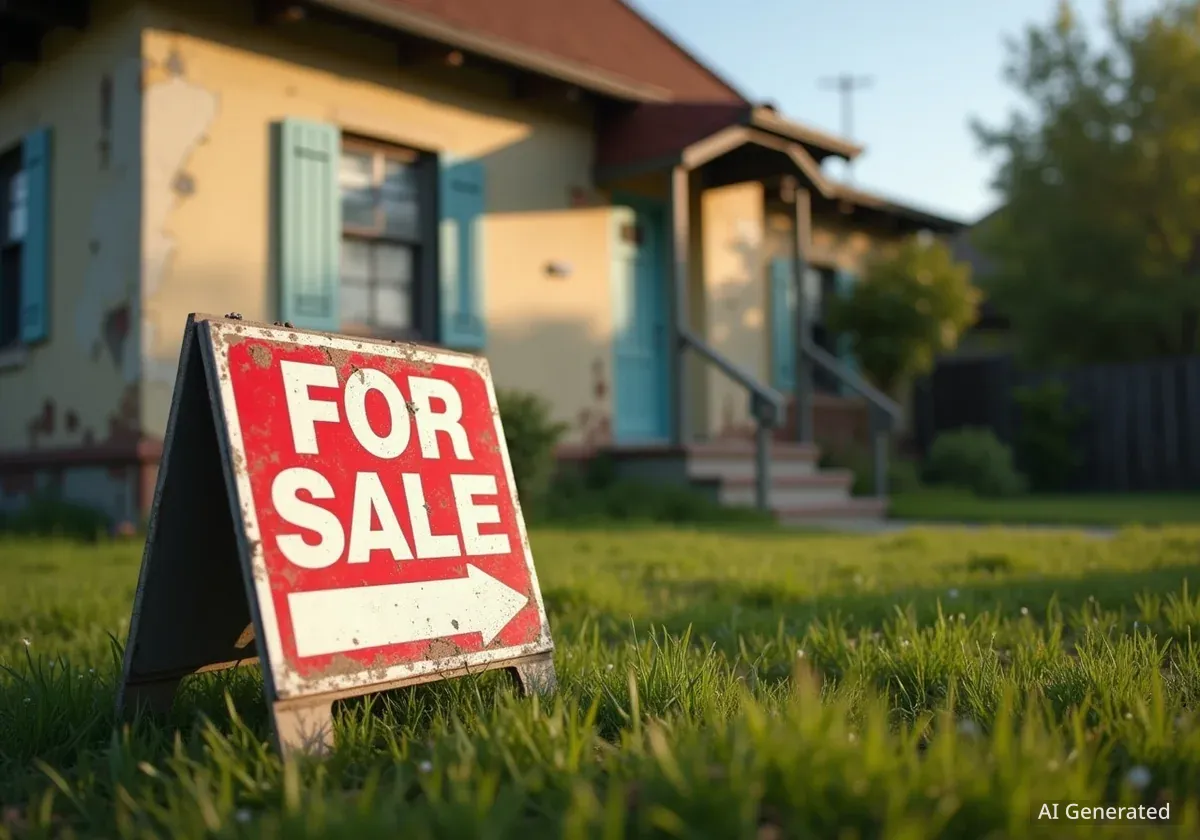Major national crises, from acts of terrorism to moments of profound social upheaval, consistently send shockwaves through the U.S. economy, and the real estate market is no exception. While the immediate effects often involve uncertainty and paused transactions, history shows that such events can also lead to significant long-term shifts in housing policy, buyer preferences, and market dynamics.
Historical precedents, such as the market disruption following the September 11th attacks and the legislative changes after the assassination of Dr. Martin Luther King Jr., provide a framework for understanding how housing markets react and adapt to profound national distress. For real estate professionals and consumers alike, recognizing these patterns is crucial for navigating periods of volatility.
Key Takeaways
- Major national events often cause a short-term pause in real estate transactions as consumers hesitate due to uncertainty.
- Increased concerns over safety can shift housing demand toward areas or property types perceived as more secure, such as gated communities.
- Significant national tragedies have historically acted as catalysts for major policy changes, including landmark legislation like the Fair Housing Act of 1968.
- Despite initial shocks, housing markets have demonstrated long-term resilience, often recovering as underlying economic fundamentals reassert themselves.
- In times of crisis, the role of real estate professionals evolves, requiring them to act as data-driven educators to guide clients through uncertainty.
Immediate Market Reactions to Uncertainty
The most immediate impact of a national crisis on the housing market is a sudden halt in activity. Widespread uncertainty causes both buyers and sellers to pause and reassess their financial decisions. This phenomenon was clearly observed in the weeks following the September 11, 2001, terrorist attacks.
During that period, many prospective homebuyers withdrew their offers, and some even walked away from deposits, choosing to wait for a clearer picture of the nation's economic and social stability. Sellers, in turn, delayed listing their properties, anticipating a drop in consumer confidence and potential price declines.
Historical Context: The Post-9/11 Housing Market
In the immediate aftermath of 9/11, the U.S. stock market closed for four days. When it reopened, it posted its biggest one-week drop since the Great Depression. This financial volatility directly impacted housing, as lenders tightened standards and consumer confidence plummeted. However, the Federal Reserve's subsequent decision to aggressively cut interest rates helped stabilize the market and, within months, spurred a new wave of buying activity, demonstrating the market's capacity for a swift rebound under the right policy conditions.
According to Rick Palacios Jr., Director of Research at John Burns Real Estate Consulting, this reaction is a predictable consumer behavior. "When you have any volatility, it causes some skittishness on behalf of the consumer," Palacios has noted in market analyses. This initial freeze is typically a short-term reaction driven by emotion and a lack of clear information rather than a fundamental shift in market health.
Shifting Priorities: Safety and Location
Prolonged periods of social unrest or heightened public safety concerns can fundamentally alter what buyers look for in a home. When personal security becomes a top priority, housing preferences often shift toward properties and neighborhoods perceived as safer.
This can lead to increased demand for specific features and locations, including:
- Gated communities with controlled access.
- Properties equipped with advanced security systems.
- Homes in areas with low reported crime rates.
- Suburban or rural locations perceived as being insulated from urban centers of unrest.
For example, parents of college students might become more selective about off-campus housing near politically active universities. Similarly, sellers in areas close to civic centers or frequent protest sites may find it necessary to highlight community safety measures and neighborhood resilience in their marketing efforts. Real estate agents often respond to this shift by providing clients with detailed crime statistics, information on neighborhood watch programs, and highlighting a property's security infrastructure.
The Catalyst for Legislative Change
History provides powerful examples of how national tragedies can accelerate the passage of landmark legislation, with profound and lasting effects on the housing industry. One of the most significant instances is the passage of the Fair Housing Act.
The Fair Housing Act, which prohibited discrimination concerning the sale, rental, and financing of housing based on race, religion, national origin, or sex, had been stalled in Congress for years. However, following the assassination of Dr. Martin Luther King Jr. in April 1968, the bill was passed by the House of Representatives just one week later as a tribute to his legacy in the civil rights movement.
This historical event demonstrates that a moment of national crisis can create the political will necessary to overcome legislative gridlock. In modern contexts, a major public safety event could potentially spur new debates and regulations related to campus security, public gathering safety, or zoning laws for secure residential developments. Such policy shifts, while not always directly aimed at housing, can have indirect consequences on property values, insurance costs, and development standards.
Staying Informed on Policy
Real estate professionals are advised to monitor proposed bills and local ordinances that may arise following a crisis. Professional organizations like the National Association of Realtors (NAR) and state-level associations often provide legislative updates and analysis that can help agents and their clients understand how new policies might affect property ownership and investment.
Long-Term Resilience of the Housing Market
Despite the initial shock and disruption caused by national crises, the U.S. housing market has consistently demonstrated remarkable resilience. While short-term political or social turmoil can cause temporary pauses, the fundamental drivers of housing demand remain intact.
Families continue to grow, people still relocate for jobs, and investors seek stable, long-term assets. These core needs ensure that demand for housing persists beyond the immediate crisis. Furthermore, economic responses to a crisis can sometimes create new opportunities for buyers. For instance, in an effort to stabilize the economy, the Federal Reserve may lower interest rates, making mortgages more affordable and incentivizing buyers to re-enter the market.
To navigate these periods, real estate agents often advise clients to focus on long-term fundamentals rather than short-term volatility. Key data points such as local job growth, housing inventory levels, and long-term price trends provide a more reliable picture of a market's health than the reactionary sentiment that dominates news cycles during a crisis.
The Evolving Role of the Real Estate Professional
In times of national uncertainty, the role of a real estate agent transforms from that of a salesperson to an essential educator and trusted advisor. Fear and speculation can lead to client anxiety and poor decision-making. A professional's primary responsibility becomes to counter misinformation with credible data and historical perspective.
Effective agents help clients by:
- Acknowledging Concerns: Listening to and validating client fears about safety and financial stability.
- Providing Data-Driven Insights: Sharing factual information about local market trends, historical performance during past crises, and current inventory levels.
- Highlighting Market Fundamentals: Emphasizing the long-term factors that support property values, such as employment and population growth.
- Monitoring Policy Developments: Keeping clients informed about potential legislative changes that could impact their investment.
By grounding conversations in facts and maintaining a long-term perspective, real estate professionals can build trust and help clients make informed decisions. This approach not only serves individual clients but also contributes to a more stable and rational market environment, ensuring that the goal of homeownership remains achievable even in the most challenging of times.





